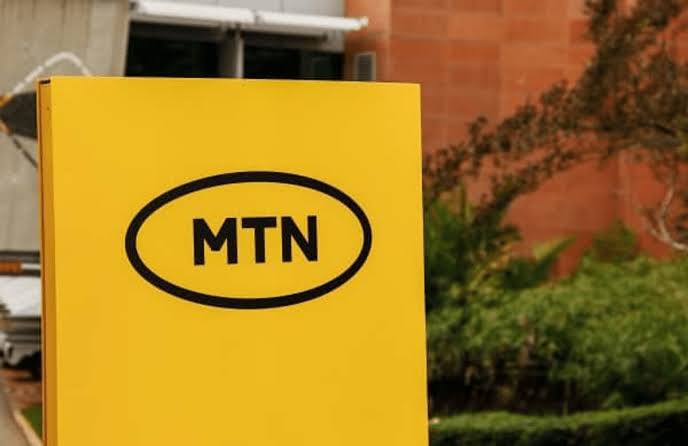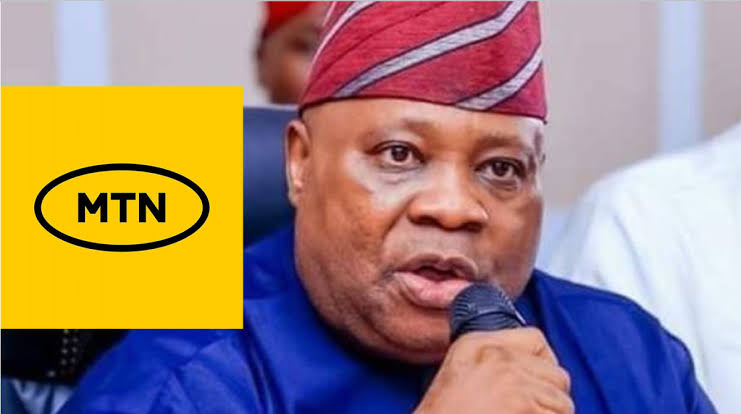Physical Address
60 Ekwema Cres, Layout 460281, Imo
Physical Address
60 Ekwema Cres, Layout 460281, Imo

The ongoing dispute between the Osun State Government and MTN Nigeria has escalated into a significant conflict over right-of-way fees, with the government claiming that the telecom giant owes ₦945 million for laying high-speed internet cables.
This situation has drawn attention to the complexities of telecommunications infrastructure development in Nigeria, particularly in relation to partnerships with local entities like O’odua Infraco Resources Limited.
On Friday, the Osun State government announced its demand for MTN to settle the alleged debt, which is based on a calculation of ₦3,500 per linear meter of fiber-optic cable laid.
Additionally, the government has imposed a ₦100 million fine on MTN, further complicating the financial implications of this dispute.
The telecoms regulator has stepped in to mediate, indicating the seriousness of the situation.
According to sources familiar with the matter, the conflict is rooted in a complicated relationship between MTN and O’odua Infraco, which began with a partnership agreement in September 2022.

This agreement granted MTN an “indefeasible right of use” to lease O’odua’s fiber ducts, which are designed to protect cables from vandalism and degradation.
While MTN paid O’odua right-of-way fees under this agreement, the Osun State government contends that O’odua was not authorized to collect these fees on its behalf.
The Osun State government argues that it was not a party to the agreement between MTN and O’odua and is therefore not bound by its terms.
Officials claim that the fees MTN paid to O’odua amount to only ₦650 per linear meter, significantly less than the minimum charge of ₦1,300 set by the state.
Furthermore, they assert that the government has not received any payments from MTN related to this matter.
In a press statement, the Osun State government emphasized that the agreement between O’odua and MTN predates any contract for right-of-way fees established between the state and O’odua.
This timeline is crucial, as it suggests that MTN’s dealings with O’odua may not align with the regulatory framework set by the state.
O’odua Infraco has become a focal point in this dispute, as its agreement with MTN Nigeria raises questions about the legitimacy of fee collection.
The government has highlighted the need for a no-objection letter from relevant authorities, including the Federal Ministry of Works and Housing, to validate O’odua’s role in this arrangement.
Without such documentation, the state maintains that it cannot recognize the fees collected by O’odua as legitimate.
The controversy is further complicated by the Osun State government’s decision to cancel right-of-way fees in March 2023.
This cancellation was reportedly based on commitments from telecommunications companies to expand internet access to underserved areas, a promise that officials claim has not been fulfilled.
The government’s stance reflects a broader frustration with how telcos manage infrastructure investments, particularly in less commercially viable regions.
Read Next: UBA Enhances Mobile App, Introduces Transaction Dispute Feature
Right-of-way fees are a critical source of revenue for many state governments in Nigeria, and they play a significant role in the overall landscape of telecommunications infrastructure.
While the Federal Government has recommended a fee of ₦145 per linear meter, enforcement has proven challenging.
Many state governments, including Osun, believe that telecommunications companies should view these fees as a necessary cost of doing business.
MTN, facing economic pressures from naira devaluation and inflation, may be hesitant to comply with the Osun State government’s demands.
This reluctance could hinder the expansion of high-speed internet access, particularly in rural areas where infrastructure development is most needed.
As the dispute continues, the outcome will likely have significant implications for both MTN Nigeria and the Osun State government, as well as for the broader telecommunications sector in Nigeria.
The mediation process initiated by the telecoms regulator will be crucial in determining whether a resolution can be reached that satisfies both parties and supports the goal of enhancing internet access across the state.
Was this information useful? Drop a nice comment below. You can also check out other useful contents by following us on X/Twitter @siliconafritech, Instagram @Siliconafricatech, or Facebook @SiliconAfrica.